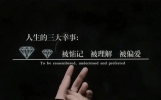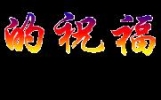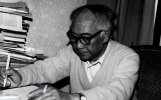一、in the beginning 与at the beginning 区别?
in the beginning和at the beginning的区别为:意思不同、用法不同、侧重点不同。
1、意思不同
1、in the beginning意思:开始的时候。
2、at the beginning意思:起初。
2、用法不同
1、in the beginning用法:基本意思是“从静止状态转移到运动状态”,可指工作、活动等的开始; 战争、火灾等的发生; 也可指人开始工作,着手某项活动等; 还可指人、事物使某事情发生或引起某事情。
2、at the beginning用法:用作不及物动词,也可用作及物动词。用作及物动词时,可接名词、代词、动名词、动词不定式作宾语,也可接以现在分词充当补足语的复合宾语。偶尔还可用作系动词,接形容词作表语。
3、侧重点不同
1、in the beginning:in the beginning侧重于单独用作时间状语或定语,而较少跟of短语连用。
2、at the beginning:at the beginning侧重于跟of短语连用。
二、at first和in the first的区别?
①
in the first place与at the first place的区别为:指代不同、用法不同、侧重点不同
1、指代不同
1、in the first place:起初,一开始。
2、at the first place:在最初的地方。
1、in the first place:first用作形容词一般修饰单数名词,修饰有few或数词修饰的复数名词时是把复数名词看作一个整体。first与基数词连用时,一般置于基数词前,但first引起的固定词组则应置于基数词之后。
2、at the first place:place是可数名词,基本意思是“地方,场所,所在地”,引申可表示“城,村,镇”“家,房屋,住所”等,也可表示用于某种特殊目的或发生某事的“建筑物,场所”,常与介词of搭配使用。
1、in the first place:侧重于指抽象意义上的最开始的时间。
2、at the first place:侧重于指实际意义上的地方
②
用法不同。at first意思是, 刚开始(其后的事态发展往往和一开始不一样),例句:At first I couldn't believe it. I thought it was a wind-up by one of my mates.
一开始我不相信,以为是哪个同伴在故意逗我。
in the first 意思是,首先(要陈述一系列事情的第一件时常用),例句:I don't think we should have been there in the first place.
我认为我们从一开始就不该在那儿。
三、in silent和in silence的区别?
1、in silence 做状语 一声不吭地
2、in silent +名词 才能做状语
读音:
1、in silence英 ['saɪləns]美 ['saɪləns]
2、in silent英 ['saɪlənt]美 ['saɪlənt]
释义:
1、in silence沉默地
2、in silent在沉默
例句:
1、in silence
(1)I waited in silence.
我沉默地等待着。
(2)I started to be more present. I meditate more and I stay in silence more.
我开始更加注重现在。每天都会让自己有更多的冥想和沉默。
(3)When reading that book, I got great pleasure. Of course, I was in silence then.
阅读那本书时,我得到了很大的乐趣——当然,当时我在沉默中。
2、in silent
(1)Run the installation program in silent mode.
以透明的方式运行安装程序。
(3)I gazed at the door in silent surrender, as my body stepped proudly on to the premises, displaying its newly designed menu.
我在心灰意冷的沉默中注视着厨房门,看到我的身体骄傲地走进屋来,展示它最新设计的菜单。
(3)The 75-person encampment in Boise, Idaho, will send "consumer zombies" to wander around in silent protest of what they view as unnecessary spending.
爱达荷州博伊西市的75人露营团体,向那些进行不当消费的沉默示威者们赠送“消费者僵尸”。
in silent 不能单独用,后面要有一个名词:in silent mode,in a silent way,in silent movies 等等。
in silence:介词短语,可作状语修饰句子,也可作后置定语修饰名词。
①in silence 做状语 一声不吭地
如:
Instead,she set her jaw grimly and waited in silence.
相反,她一脸严肃,面部紧绷,一声不吭地等着.
Rosanna and Forbes walked in silence for some while.
罗莎娜和福布斯默不作声地走了一会儿.
②in silent +名词 才能做状语
The boys looked at the conjuror in silent wonder.孩子们目瞪口呆地看着那魔术师.
2、All rose and stood in silent tribute.
全体起立默哀.
③
in silent和in silence的区别为
in silent释义:
在沉默
They nodded in silent agreement.
他们默默地点头表示同意。
in silence释义:
沉默地
Let your smiling lips say on oath how my voice lost itself in silence like a drunken bee in the lotus.
让你含笑的唇儿发个誓,告诉我我的声音怎样在沉默中消失,像一只在荷花中沉醉的蜜蜂。
四、started的用法及短语?
n.
开始,起点
After several starts, she read the report properly.
经过几次断续后,她开始顺利地念报告了。
She demanded to know why she had not been told from the start.
她想知道为什么一开始没有告诉她。
Let's start cooking.
我们开始做饭吧。
动身;开动
Let's see how fast you can pick up from a standing start.
看看你站着起跑后能加速多快。
An early start will get us well ahead before the crowds.
早点动身,我们会远远走在人们的前面。
震惊,震动
He gave a slight start.
他微微地震动了一下。
She gave a shuddering start as she became aware of someone standing behind her.
当她觉察到有人站在背后时,她吓得浑身一打战。
v.
出发,起程 [I,T]
We'll have to start out early and start back for home in the afternoon.
我们必须早点出发,并在下午就动身回家。
I should be instructed when to start.
应当通知我出发的时间。
开始,着手 [T]
We have many problem to surmount before we can start the project.
我们得克服许多困难才能着手做这项工作。
I start to earn my own living this very afternoon.
就在今天下午我要开始自己挣钱了。
开动,发动,启动 [I,T]
He quickly started the engine working by pressing a button.
他按下按钮,引擎就很快地发动起来。
This stupid car won't start.
这辆破汽车就是发动不起来。
开办,创办 [T]
George Granger has started a health centre and I know he's looking for qualified staff.
乔治·格兰杰开办了一个保健中心,我知道他正在物色合格的职员。
Now is probably as good a time as any to start a business.
目前可能正是创业的最佳时机。
惊起,吓一跳 [I]
We made a loud cry to start the hare.
我们高声大喊以惊起那只野兔。
She put the bottle on the table, banging it down hard. He started at the sound.
她砰的一声把瓶子放到了桌子上,把他吓了一跳。
五、in是什么的标志?
意思是:在……内;进……里;
英[ɪn]
prep.在……内;进……里;在……期间;在……以后;穿着;在……状态中;在……方面;
adv.进入;在里头;到达;当选;涨潮;在屋里;在车站;收到;递交,送到;填写,着色;
adj.在里面的;时髦的;(用球)界内的
n.执政者;门路
[复数:ins]
短语:
Puss in Boots穿靴子的猫;靴子猫;鞋猫剑客
扩展资料:
词语辨析:in,for
for和in都可表示时间。
1、for表示一整段时间,其动作或状态由这段时间的开始持续到这段时间的终了,因此for本身就有“持续”的含意;而in只是划定一个时间界限,而其动作或状态只局限在这个范围之内,但不一定贯穿始终。
2、表示将来的一个时期,在肯定句中用in;但在否定句中只能用for。
六、在早上,是用in还是on?
在具体某一天的早上用介词on。具体到某天用on。
表示“在具体的某一天”或“(在具体某一天的)早上、中午、晚上”等。
例如:on August 14th,2018
在2018年8月14日
on a sunny morning
在一个晴朗的早上
on a winter afternoon
在一个冬天的下午
注意:当morning,afternoon,evening被of短语修饰时,习惯上用in,而不用on.例如:in the eary morning of October 1st (在10月1日的清晨)
其他用法:
1、表示“在星期几”或“在星期几的早上、中午、晚上”等。
例如:on Tuesday
在周二
注意:“在周末”的季中表示法:at/on the weekend(在周末,特指);at/on weekends(在整个周末);during the weekend(在周末期间)
2、on表示“在某一节日”。
例如:on Mid-autumn Festival
在中秋节
注意:on Christmas Day指圣诞节当天,而at Christmas则表示“圣诞节期间”。
早上是一天的开始,是也是开心的开始呀每个人都沉浸在美好一天的筹划中,寄予美好的希望,是用in。
七、inthebegining同义短语?
in the begining的意思是起初,在开始的时候。
同义短语是at first。
八、at the beginning与in the beginning一样吗?
不一样。
at the beginning 和 in the beginning 所表达的语义有所不同。
英语介词 at 和 in 在用于时间表达时,at 为时间点,in 为时间段。
依据这一基本词义,at the beginning 表达的是一个在开始时的时间点,即以某一活动或情景作为开场的标志,如开场白、开幕音乐等;in the beginning 则表达开始后正式活动的时间段,如会议首先讨论的议题、演出开场后的第一个节目等。
就内容而言,在很多情况下,in the beginning 用来表达事情或活动的第一段安排,属于事情或活动的一部分;而 at the beginning 发生的事则不一定是活动的一部分。
更多的例句: At the beginning of the world, there was nothing but water. (世界开始时只有水的存在)
At the beginning of the term, the number one priority is to make sure you know about your teacher. (学期开始时就应该了解上课的老师)
In the beginning, we will discuss if it is really necessary to develop a new product. (讨论的第一个内容)
In the beginning everybody put their money into internet enterprises. (刚开始投资阶段的现象)
九、at the beginning和in the beginning有什么区别? 给两个例句?
区别:in the beginning 意为“开始时”;at the beginning不能单独用,它后面须加of,意思为“在开始…时候”:
1、At the beginning of the meeting,he didn′t say anything;but at the end of the meeting,he said a lot.
2、In the beginning,he sang a song;but in the end,he gave a speech on how to make friends.
































